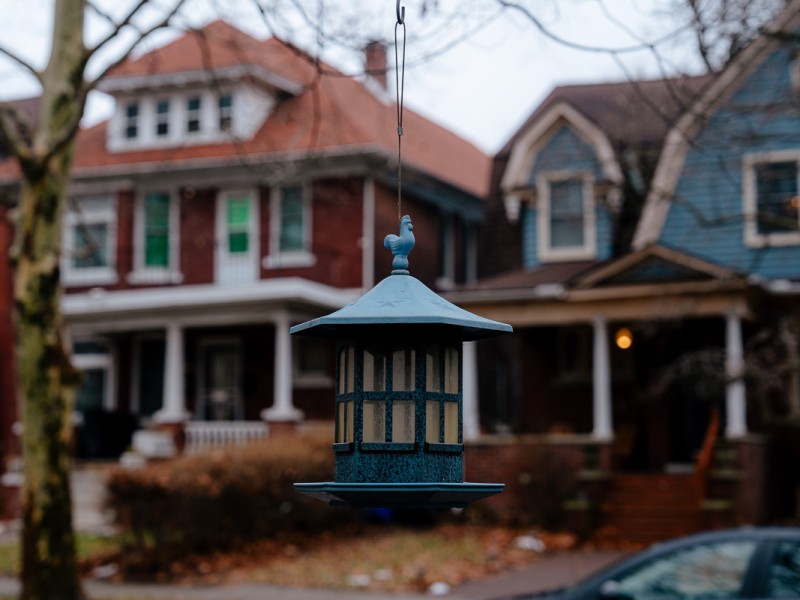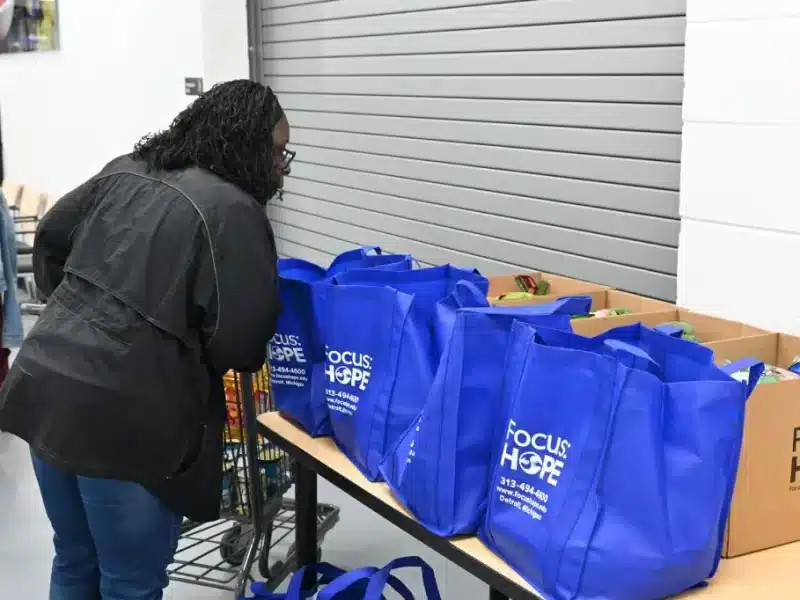Sidewalking
People walking dogs, moms and dads with babies, kids playing on the sidewalk. Neighborhood life in Detroit comes alive with happy barks and friendly smiles.
For nearly a decade Opal Ritchie and Wendell White race walked around their Green Acres neighborhood on Detroit’s northwest side, proud to log at least four miles at a swift aerobic pace.
Then came baby Adam White. “We still walk, but we stop a lot more, wave a lot more and interact a bit more with our neighbors. We’ve met people we didn’t know existed,” says Opal, whose baby turns one year old this month. “Adam loves to go out in his stroller and babble in baby talk. Neighbors love to see him smile.”
One of the surest ways to meet neighbors and join conversations is to step out with a stroller or dog leash, according to active Detroiters. Days of feeling lonely, isolated, evaporate around the happy noise of babbling and barking.
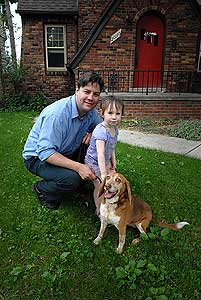 “Babies are a sign of hope in the world because we can see the wonder in their eyes and the openness,” says John Daniels, director of the University of Detroit Mercy Leadership Institute. Daniels encourages students to experience the street in order to understand a neighborhood and feel a part of its collective energy.
“Babies are a sign of hope in the world because we can see the wonder in their eyes and the openness,” says John Daniels, director of the University of Detroit Mercy Leadership Institute. Daniels encourages students to experience the street in order to understand a neighborhood and feel a part of its collective energy.
Dogs play an active part in neighborhoods too, Daniels says. “Dogs are happy to see us. Their tales wag,” he says. “They take us beyond our thoughts and sensibilities to what is real and happening now.”
Furry friends
Daniels, who lived 30 years in the University District before moving to the Manresa Jesuit Retreat House in Bloomfield Hills, said he fondly recalls the density of his two-flat neighborhood just north of the college. Daniels and his wife held annual ice cream socials for all the kids on the block, an event that helped bond the 60 families and amuse the children.
“The contagion was wonderful. No one saw race or economic differences,” Daniels says. “They saw smiles and heard happy barking and meowing as the pets came out too.”
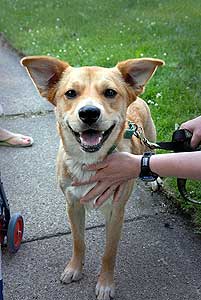 Last month the Michigan Humane Society held a free vaccination clinic for pets at Clark Park, bringing scores of southwest Detroit neighbors out to meet, greet and share animal stories. Anne Weekley, a Hubbard Farms resident brought her dog, Peanuts to see his furry friends.
Last month the Michigan Humane Society held a free vaccination clinic for pets at Clark Park, bringing scores of southwest Detroit neighbors out to meet, greet and share animal stories. Anne Weekley, a Hubbard Farms resident brought her dog, Peanuts to see his furry friends.
“Peanut loves all the kids. He puts his head down or rolls over on his belly to get petted,” Weekley says. The more she walks, the more she meets children, families, even a man of marginal means. “This man was so charmed by Peanut he began leaving dog food at my door step.”
Plodding along the sidewalk of her multicultural neighborhood as her dog sniffs or prances, she finds smiles and barks are a universal language. Happy faces wave in daily greetings as the weather brings more faces out of doors.
Play on lively, diversified sidewalks differs from virtually all other daily incidental play offered American children, according to the late sociologist and author Jane Jacobs, who insisted street life was better for mingling than sterile parks. In The Death and Life of Great American Cities, Jacobs writes:
“In real life, only from the ordinary adults of the city sidewalks do children learn – if they learn it at all – the first fundamental of successful city life: People must take a modicum of public responsibility for each other even if they have no ties to each other.”
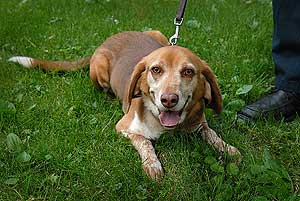 Mutual love
Mutual love
Paul Eggebrecht, father of two-year-old Maggie and owner of Dobby, pulls a wagon and a leash as he takes his nightly walk through Green Acres. He has had so many conversations with neighbors since strolling with his daughter he now wants to run for the citizen board of directors.
“You notice more when you are outside, you feel a greater part of the community,” Eggebrecht says. He knows nearly every house with animals because Dobby begins to put her ears back and wag her tail as soon as she is within sniffing distance of her play pals. “It’s a mutual love fest.”
Maureen McDonald is a Detroit-based freelance writer and regular contributor to Model D.
Anne Weekly walking Peanut, visiting a neighbor
Paul and Maggie Eggebrecht with Dobby
Peanut
Dobby
All Photographs Copyright Dave Krieger

